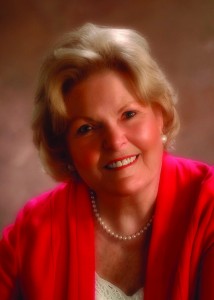New Models and Practices
One cannot merely follow the timetable we have set for our influence on the world, we must also honour and respect the infinitely more complex timetable the world has set for itself. That timetable is the sum of the thousands of independent timetables of an infinite number of natural, historical, and human actions.
~ Vaclav Havel
The new normal is transformation, but what does that really mean? Colleagues at the United Nations asked me that question a short time ago. It seems that the United Nations Sustainable goals has a sub-title,”Transformation of the World,” and no one has defined ‘transformation’ as yet. My head started spinning about the years I spent at the UN lobbying for values to be recognized as the foundation of policy-making. With the help of Ambassador Somavia from Chile and many other colleagues from the NGO community, we were able to make values the foundation of the UN Social Summit in the 1990s, formed a Values Caucus, and eventually values were recognized as fundamental to policy-making throughout the UN.
Could history repeat itself? Could we help make ‘transformation’ the subject of dialogs at the UN and with the millions who identify as global citizens? Could the Kosmos community help the international community elevate the level of discussion from reforms to systemic change of consciousness, worldviews, lifestyles and institutions? Could we do more than donate hundreds of Kosmos Journals to the international community through the UN and through our Kosmos Global Ambassdors program? Could we form a Transformation Caucus at the UN and what would we stand for?
If life is the ultimate value, how can we design a new civilization aligned with all life? The answer to that question is the powerful mission of the Kosmos community. Defining the various dimensions of the transformative times we live in involves the whole world community. It affects every dimension of our lives.
It calls us to develop new skills and capacities—to make practices such as mindfulness central to mastery over our emotions and thoughts, not only for peace of mind, but as a responsibility to others who are affected by our moods and thoughts, as neuroscience research now affirms.
We will discover that we all have access to a source of wisdom – the higher self beyond ego—and that a meaningful life involves helping others and helping the world evolve so that the soul of humanity can emerge. Viewing life as constantly evolving, rather than a static system we all try to fit into, we will let our spontaneity flourish and bring vitality back to our lives. We feel more alive in the presence of nobility, grace, elegance, beauty.
Transforming is disruptive and challenging. It requires discipline, courage, risk, as well as intimacy with the silent deep dimensions of our being. It requires compassion and tolerance of diversity and understanding who wins and who loses in the old and new paradigms.
Much of the struggle for the new life to emerge comes from resistance of powerful elites embedded in and benefiting from the old systems. It also comes from a belief in the ultimate truth of scientific proofs, rational thought, dominant hierarchies, and experts. Many of us give over our power to these ideas of others, rather than trusting our own intuition and inner knowing. We are fighting for the soul of humanity now. What will we choose?
As we transition to the new, another emerging problem is that many are putting their transformative ideas/projects into old systems and contexts. For example, connecting the world community through Facebook but doing it within the capitalist system rather than a sharing economy where all the contributors benefit; or creating a sharing economy, like Uber, with the benefits accruing to owners only.
Without a change of personal consciousness and worldviews our institutions will not be transformed. They will change on the surface only, as David Cooperrider writes in this issue of Kosmos. A transformed world will choose governance for the good of the people; a sharing and commons economy, respecting life as the common denominator of all beings—biology; lifelong self-education, restorative justice, business for the greater good; unbiased citizen journalism, and more
In short, transformation is the new normal. We are in an exploratory time when no one has the answers. Social labs are proliferating. They are not required to come up with answers, but to experiment to discover what works. It’s trial and error. It’s recognizing that what works in our culture may not work in others. It is about honoring a diversity of paths. Spiritual values of cooperation, kindness, compassion, understanding, and wisdom will be needed and encouraged rather than being considered ‘soft.’ The first realization is that transformation is the new normal and it is pervasive in all spheres of life at once.
So let’s spread the good news. Transformation is the new normal. It is time to leave behind unlived, static lives, and join the crowd experimenting, spontaneously creating, joining together with passion to create something brand new. There is no right or wrong— success or failure—just the sheer joy of creating.
We might even find that transformation has been incorporated in the global agenda and before we know it the whole world is alive once again.
Nancy Roof


